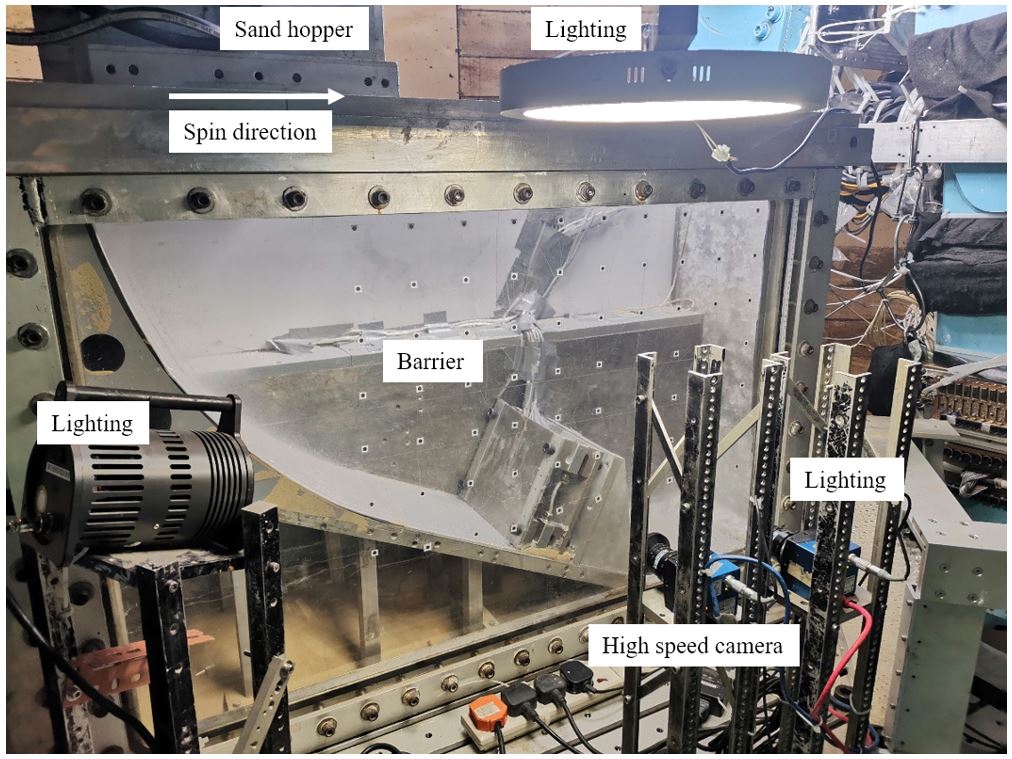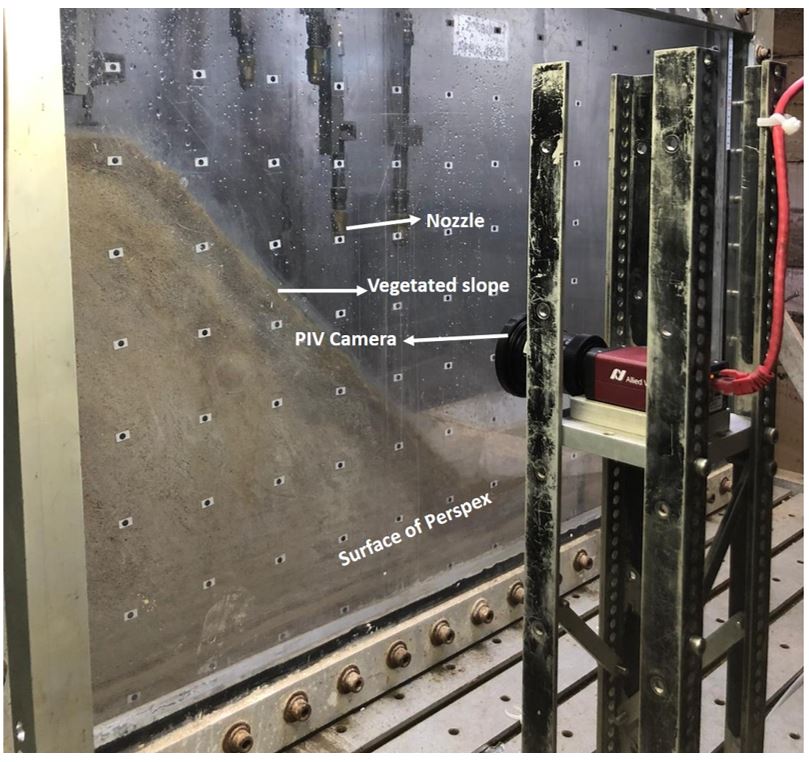Projects for Geo-Environment Engineering
Raul B. A. DE SOUSA
Research topic: Stability of unsaturated soil slopes under tree felling

The interaction between plant roots and soil has been investigated over the decades for applications in civil engineering as slope stabilization. Although much advancement has been done, the underlying mechanisms at which tree felling affect soil reinforcement is not fully understood given the natural variability of both soils and plants and the practical limitations of testing large tree root systems in the field. My research aims to use centrifuge modelling to simulate the hydromechanical behaviour of soil slopes under different stages and patterns of tree removal. For that, small-scale 3D printed root models with realistic morphological and mechanical properties are produced to mimic the real roots before (“live” condition), immediately after (“dead” condition), and n years after (“decayed” condition) tree felling.
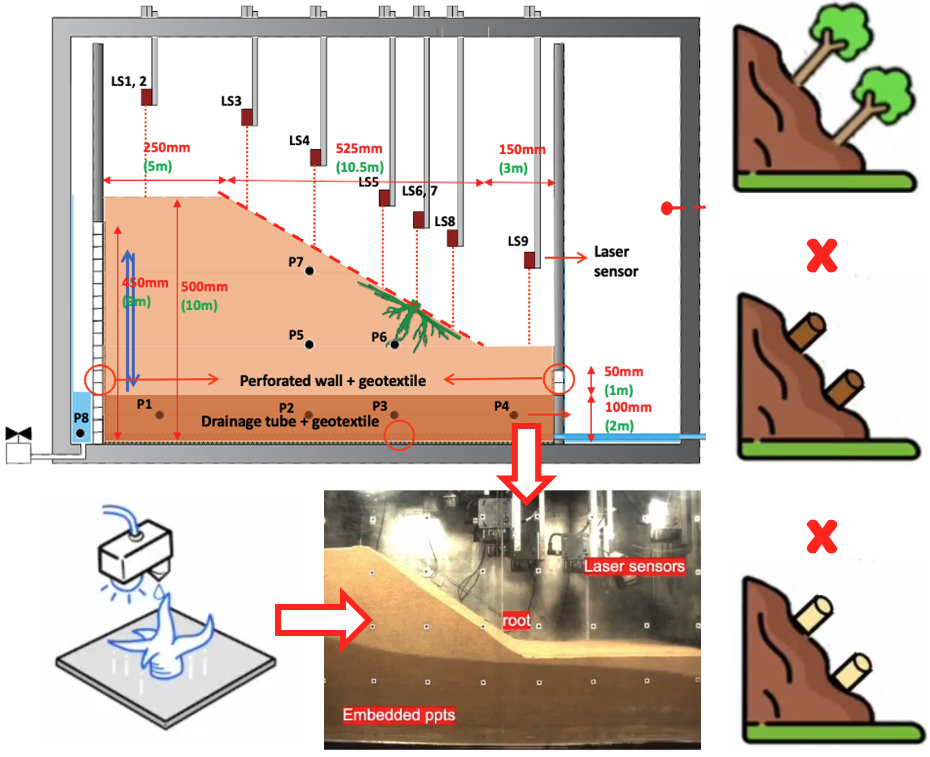
Yinhan LIU
Research topic: Root-soil interaction for assessing tree stability

The impact of wind on tree root stability has been extensively studied due to the frequent occurrence of wind-induced tree failures, especially during severe weather events such as hurricanes, typhoons and windstorms, which pose a significant threat to public safety and can result in economic loss. The model package has been designed, which includes a scaled 3D printed root model and a device for simulating lateral wind load on a tree to parametrically measure the overturning resistance of different root architectures in different soil types investigating the root-soil interaction. A better understanding of the mechanisms of tree root failure and anchorage stability of tree roots can be obtained through centrifuge tests, which can help tree specialists and engineers develop strategies to mitigate the risk of damage.
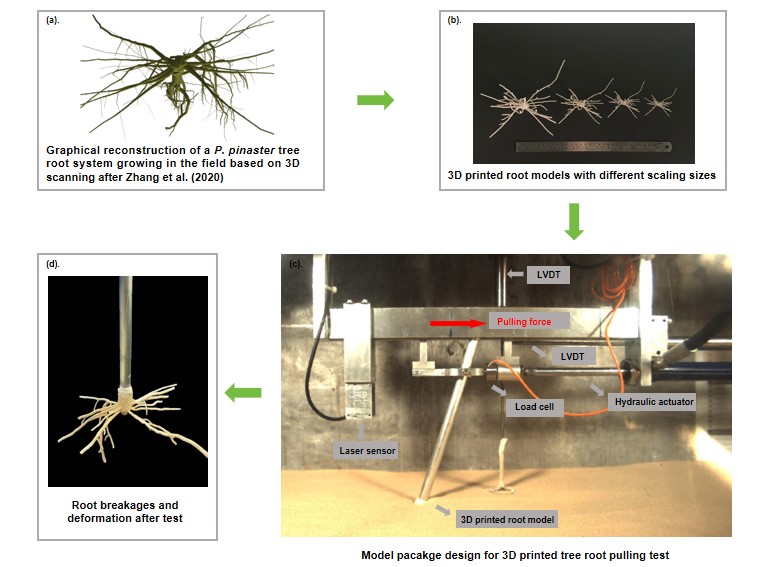
Yikai WANG
Research topic: Effects of freeze-thaw cycles on deterioration of unsaturated slopes

As a post-doctoral researcher, I am interested in the centrifuge modelling of freeze-thaw cycles on the unsaturated soil slopes. Frost heave, thawing settlement and crack behaviour are the major concern in my study. I developed an in-flight freeze-thaw system within the environmental chamber of the centrifuge. With this device, researchers can gain a deeper insight into the serviceability performance of infrastructures located in challenging ground condition——seasonally frozen soil. Furthermore, when taking account into the climate change, embankments in subtropical area can suffer from freezing-thawing. Design and maintenance methods of slopes in seasonally frozen regions are the major target of my research.
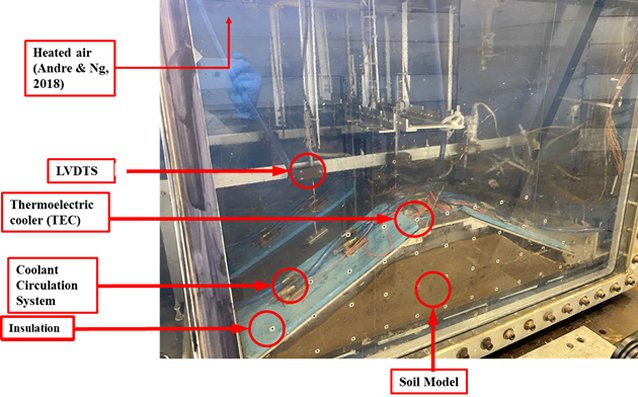
Xin HE
Research topic: The mechanism of debris-ice avalanches

I am currently a 4th-year PhD candidate supervised by Prof. Limin Zhang, focusing on the study of debris-ice avalanches from their initiation to deposition. In contrast to conventional centrifuge modelling tests, the presence of ice in these avalanches necessitates temperature control to preserve the integrity of ice particles. To address this requirement, I have developed a specialized flume equipped with a cooling system that enables the simulation of the entire process of debris-ice avalanches under negative temperatures. This innovative device allows researchers to gain comprehensive insights into various aspects of these avalanches, including their impact characteristics, flow dynamics, and the amplification effect resulting from erosion. By replicating the environmental conditions of debris-ice avalanches with precise temperature control, our research aims to contribute to a deeper understanding of the complex behaviours and mechanisms involved in these hazardous phenomena. The insights gained from this study can further aid in the development of effective mitigation strategies and engineering measures to minimize the risks associated with debris-ice avalanches.
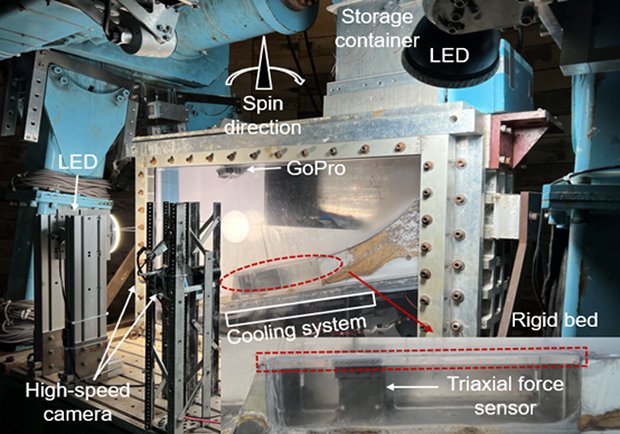
Chao WANG
Research topic: Smart flexible barrier for debris flow mitigation
I admitted to the PhD program in HKUST since 2016. I am working on a project relating to the use of smart flexible barrier as a mean of landslide mitigation. A major challenge of this project is to correctly model the relative stiffness of barrier and the incoming debris flow. In my research, the centrifuge at HKUST is utilized to model the debris volume of 170 m3 in prototype, and its interaction with the barrier of varieties thickness and stiffness. I hope my research will be able to help derive some improved equation for assessing the debris impact force and hence better design the flexible barriers.
Gayuh PRASETYANINGTIYAS
Research topic: Effects of root decomposition on slope stability
I am a second-year Ph.D. student from Chulalongkorn University, Bangkok, Thailand, and am currently a research exchange student at HKUST. My research area is on the use of soil bioengineering using vegetation to soil stabilisation. I am working on a project investigating how root decay and decomposition may affect the root biomechanicas, soil hydraulic properties including water retention and hydraulic conductivity function, as well as the slope hydrology and stability under rainfall conditions. The species I am interested in Vetiver grass, which has been recognised to be an excellent candidate for slope stabilisation in the literature of soil bioengineering. This kind of grass was transplanted in the centrifuge strong boxes and then killed to initiate root decomposition. The model slopes, with and without subject to root decay, will be tested under the same precipitations to evaluate their stability.
